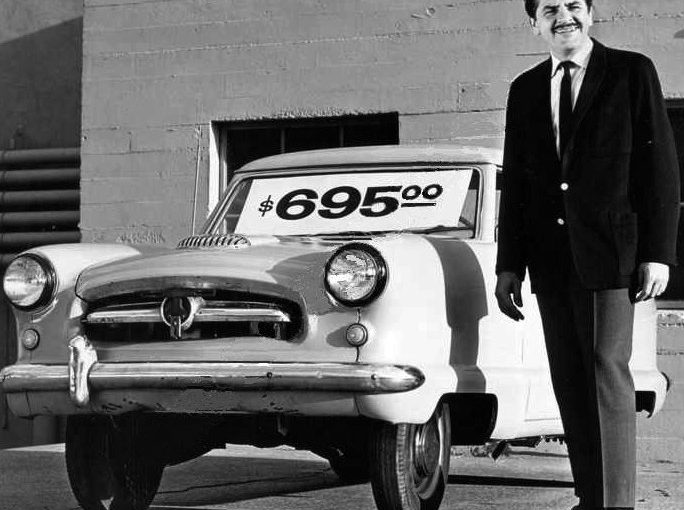Flattery works wonders! Any good salesman knows how to butter you up. On the other hand, the stereotypical “used car salesman” is transparently insincere. What if you could make people feel better about themselves, and better about you at the same time?
I’m going to show you a simple technique that I use in almost every presentation to build people’s ego’s and build my own credibility at the same time–without anybody knowing I’m doing it. Use it in public speaking, sales, or any presentation.
Bad example:
You have beautiful eyes, they match this car perfectly! I can tell you are a wise shopper and will make the right choice.
Does anybody really believe the car salesman is sincere?
Actually yes! Flattery actually works–even when people know it’s not sincere! Of course there is a reason why “used car salesman” has become a cliche. It’s because even though the flattery works, we still don’t trust the salesman.
The solution to improve your presentation skills is to combine two simple techniques, one for credibility and one for building self-worth.
Quick technique to build credibility
There’s a simple way to prove you are an expert without bragging. All you have to do is “Share the News.” Compare these 2 presenters:
Presenter 1: The government CPI measures inflation. It’s typically around 2%.
versus
Presenter 2: The government CPI measures inflation. Yesterday it was announced to be at 1%.
 Which one sounds more credible? The one who knows the “news.”
Which one sounds more credible? The one who knows the “news.”
Robots, wannabes, and underlings all deliver prepared, scripted presentations. Only a true expert know whats “new.”
Technically, that last sentence is a total lie. Anybody, can know what’s “new”– it’s easy–but perception is reality, and the perception is that the one who shares something “new” knows more.
The effective used car salesman says something like this:
J. D. Power reported just this week that this model …
What the salesman means means is that he looked up a stat from J. D. Power on this model when it came on the lot, but he makes it sound like “news.”
Quick technique to build ego
 Here’s a quick technique to secretly flatter your audience–trust them. Whether in a one-on-one conversation or in public speaking, the goal is to make the listener feel special without being too obvious.
Here’s a quick technique to secretly flatter your audience–trust them. Whether in a one-on-one conversation or in public speaking, the goal is to make the listener feel special without being too obvious.
I make it standard practice to always try something new with every audience–even if it’s just a 30 second experiment. One of the reasons I do this is to learn and practice. The other reason is so I can build the listener’s ego.
All I have to do is say something to imply that I’m trusting them with something:
Now, I’m going to try something that I’m never done before …
Suddenly the audience feels special. Doesn’t everybody want to be first? Even better:
Now, I’m going to tell you something that I’ve never told another audience, but I trust you can handle it.
Hello flattery. Hello manipulation. Hello ego.
Nothing makes people feel better about themselves than being trusted. The car salesman simply says:
You know, I’ve never told anyone this before, you’re the first customer that can really appreciate that this car …
And now for the magic …
Covert Credibility with Ego on Top
Now combine these two techniques. “Trust” the listener with “news.”
I haven’t even told my wife yet, but last night I heard the CEO say …
You must really “trust” me if you haven’t told your wife! And it’s definitely “news” if I just heard it last night. You feel special and I look like an authority at the same time.

Yes, it’s flattery, but it’s hard to tell.
Yes, it’s bragging, but it’s hard to tell.
This is how great persuaders manipulate you.
Please use your new powers for good. Great public speaking skills do not require dishonesty, just a little psychology.
For more information, check out my SpeechDeck communication skills system. The “news” technique is related to the yellow “Reveal the Message” skill of building authority. The “trust” technique it related the to blue “Empower the individual” skill of building self-worth.
Unlike the stereotypical “used car salesman,” the good ones, strangely make you want to trust them–and you feel good about yourself while doing it.
I shouldn’t tell you this, but … I heard the manager say this morning that we’re raising the price on this tomorrow. I can see you like it, so I trust you–just don’t tell anyone.


